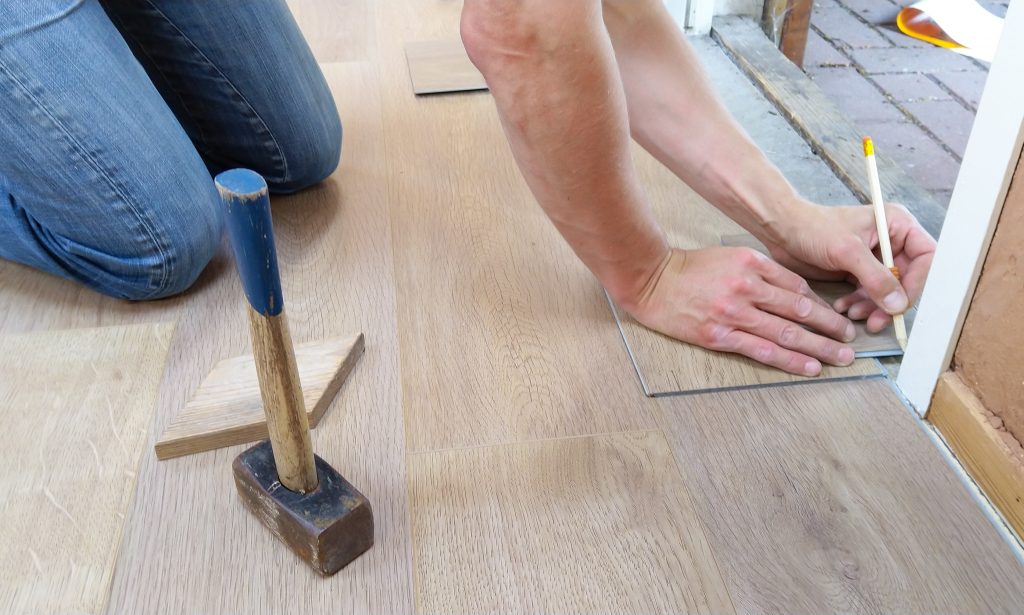Luxury Vinyl Tile vs. Hardwood Flooring
Choosing between hardwood floors and Luxury Vinyl Tile (LVT) is tough. Both can look timeless, luxurious, and stylish. Both have benefits and downsides. If you are debating what flooring to use in your next remodel, carefully consider the following pros and cons:
The look
One of hardwood’s greatest draws is its aesthetic. A good quality hardwood floor is a thing of beauty. For many years, artificial flooring simply couldn’t compete. Luxury Vinyl Tile is undoubtedly the first convincing alternative. It’s made using a photographic pattern and can look astoundingly similar to wood.
The main visual difference in LVT vs. hardwood could be seen as a pro or a con. Wood has irregular knots and imperfections. LVT won’t have the organic randomness of hardwood – but you have better control over the pattern.
Hardwood appearance:
– Elegant and natural, difficult to alter
LVT appearance:
– Convincing and customizable, lacking natural randomness
The cost
Hardwood flooring costs around $8 per square foot on average in the US. By contrast, Luxury Vinyl Tile averages around $5 per square foot. Pricing varies for both. If you are concerned about cost during your next remodel, this is something to pay attention to.
The difference adds up – using these figures, hardwood flooring in a 200 square foot room would cost $1600 vs. $1000 for LVT.
Of course, outlay doesn’t equal overall value. Properly installed and maintained hardwood flooring can last a lifetime. Luxury vinyl tile lasts 10-20 years.
Hardwood cost:
– High cost, longer-lasting
LVT cost:
– Lower cost, less longevity
The upkeep
Hardwood flooring has rules: don’t steam clean or use a wet mop; clean spills quickly; use special floor cleaner. Hardwood also needs refinishing every decade or so to avoid shabbiness.
Luxury Vinyl Tile requires very little upkeep. This is because it is water-resistant and easy to clean.
Hardwood upkeep:
– Day-to-day consideration plus periodic refinishing
LVT upkeep:
– Very low-maintenance
The environmental impact
Hardwood’s main environmental concern is deforestation. However, it’s easy to find suppliers who source wood from their own tree farms, protecting natural forests. This is simply a matter of doing proper research.
LVT also comes with an environmental stigma. Vinyl is a type of plastic, which has a bad reputation. However, many manufacturers make an effort to stay eco-friendly and prize recycled materials. Again, this is just a matter of doing proper research.
Hardwood environmental impact:
– Look for suppliers who use tree farms
LVT environmental impact:
– Look for manufacturers who prioritize eco-friendliness
In conclusion
Hardwood and Luxury Vinyl Tile are both stylish, durable flooring options. LVT is cheaper and easier to maintain, but hardwood lasts longer, and you may derive some satisfaction from having “the real deal.” Weigh up the pros and cons, and choose what seems right for your individual needs.




Sorry, the comment form is closed at this time.